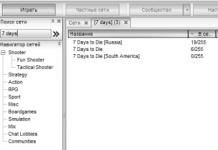People often ask what needs to be transferred to the pre-trial detention center from ordinary things and clothing. When transferring things, you should remember that their quantity should be limited, because... the prisoner is transferred from cell to cell, he goes to the bullpen when going to the investigation and to court, and finally, he goes along the convoy to the camp, and this happens more than once.
Therefore, he should have everything he really needs, but preferably nothing unnecessary, at least while he is in pre-trial detention.
And in a permanent camp, a person usually acquires some kind of property.
So what is really needed?
Cloth
Underwear.
2-3 pairs of shorts and T-shirts, instead of T-shirts, T-shirts are better, the most practical color is gray, the shorts are regular boxers.
Better than more underwear - 4-5 pairs.
Any shorts will be allowed into the camp, but T-shirts and T-shirts are only gray, white or black without pockets or emblems. In cold weather, you can pass on a pair of underwear, better than Jaeger wool - you won’t freeze in this.
Slippers.
Rubber or plastic. You shouldn't give away ordinary fabric slippers. Prisoners not only wear them in their cells, but also in the bathhouse. I highly don’t recommend going to the bathhouse barefoot - whoever doesn’t wash there, catching lichen or some other nasty thing while barefoot is a trivial matter. Rubber or plastic slippers are hygienic, easy to clean, and there are no fleas in them.
Shoes.
Boots or shoes according to the season. Preferably without laces - they are taken away from the pre-trial detention center.
There should be no metal arch supports or horseshoes - they will be torn out.
It is best that the boots or shoes are black - only these will then be allowed into the camp.
Out of season, it’s good to pass on sneakers – they’re comfortable to go out and off the streets and they’re good for playing sports. You can take them to the camp.
Sports suit.
Non-staining colors are best. Some smart people say that you can't wear red, but that's nonsense - they even wear red.
A tracksuit is needed not so much for sports, but as a “house suit” and pajamas in cold weather.
Agree that constantly wearing different clothes is inconvenient. Tracksuits are also allowed into the camp.
Shorts.
In hot weather, the most comfortable clothes, in a crowded cell with its stuffiness, they often wear only shorts, putting on a T-shirt only when they sit down to the common fund.
Socks.
5-6 pairs of regular ones, in winter 2 more pairs of woolen ones. You have to wash them often, and things don’t dry well in the chamber, so it doesn’t hurt to have a spare.
Jacket.
Regular bolognese is best. It is not blown by the wind, it is warm, it holds up to rain and does not weigh much.
A cap.
The most convenient type is knitted “pot”. If you are handing over a ushanka, it is better to be black, then they will let it into the camp.
Trousers.
The best option is jeans, just keep in mind that wearing a belt is not allowed in a pre-trial detention center.
Warm clothes.
Sweater, jacket. But in some places knitted clothes are unraveled onto homemade ropes. Therefore, a warm flannelette shirt (there are Chinese ones) would be a good option. In cold weather, a scarf and gloves will come in handy.
Bed sheets.
You can only have sheets and a duvet cover. Please note that only whites will be allowed into the camp, but in the pre-trial detention center you can be of any color. I don’t recommend handing over new underwear – there’s no one to show off to in the pre-trial detention center. It’s better not new, but strong - so that you don’t feel sorry for leaving it in prison later (well, why not take it with you to freedom?). If it’s cold, you can give a woolen blanket, but you can use it in a pre-trial detention center; most likely, you won’t be allowed into the camp.
Handkerchiefs.
Two or three are a must, colds are a common thing in a cell, but you also have to go to court, and even in a cell you have to blow your nose on something.
Towels.
A couple, or better yet three. For hands and feet. It’s better to use a pair for your hands; after the bath you’ll have to wash the towel; it dries in the chamber for a couple of days, so you need another one to replace it. Terry towels are better than regular ones.
Hygiene products
Toothbrush, toothpaste, soap in a plastic soap dish (and a couple more pieces to spare), shampoo (necessarily alcohol-free), washcloth (nylon, sponge or natural washcloth), plastic comb.
Laundry soap, a couple of bars.
They use it to wash clothes, wash themselves (lices don’t like it), and wash dishes with it. Laundry soap is used to rub the seams of the laundry so that lice cannot get there.
Washing powder. Put at least half a kilo with the transfer. They are often washed in the chamber, so powder is always needed.
Razor.
Electric razors are not allowed in pre-trial detention centers. Only disposable cassettes are allowed. I can’t imagine why others can’t, there’s no logic here. But that’s not all.
It’s better to pass on black Bik – they are more practical. Disposable razors with two blades easily become clogged with stubble, so it is better to choose one with one blade. A couple of packages is enough for a month. It will be possible to bring a good cassette razor or electric razor to the camp.
Shaving cream
(this is not necessary, you can get by with soap), cream after shaving. Please note that the cream should not contain alcohol, otherwise it will not be accepted. The tubes are only plastic, the tin ones won't let through.
Deodorant
It’s not necessary, but if you pass it on, it’s better to use a ball or hard one. Aerosols are not permitted and must not contain alcohol.
Toilet paper.
If accepted, then a couple of rolls must be included in the delivery - a most necessary thing, in addition to its traditional use in pre-trial detention centers, toilet paper acts as an air freshener. Just don't laugh - a tightly rolled and smoldering strand of toilet paper effectively repels the smell of feces.
Dishwashing liquid.
If you miss products like “Fairy”, then it’s just fine; washing a greasy plate in cold water with laundry soap is something that brings a lot of daily exciting moments and genuine drama. Accordingly, put in a pack of dish sponges (usually a pack of 5).
Dishes
It is better for the prisoner to have his own dishes - it is more hygienic and safer for health. Not to mention the fact that not all pre-trial detention centers provide utensils. So pass the following:
A deep plastic bowl, one or two. Only made of plastic, metal is not allowed.
Aluminum spoon, better to have two in stock, they always get lost. You can give a wooden spoon, as well as a plastic or wooden tea spoon. Forks are not allowed in pre-trial detention centers and camps.
Plastic mug. Again, only plastic.
Plastic bucket
1 liter or more (mayonnaise or ice cream is sold in such buckets in stores) or a container with a tight-fitting lid. They are needed for storing food and preparing food and tea.
Boiler.
Just be sure to have one, preferably two in reserve - they burn quickly. A very important thing, try not to forget.
Other
Writing utensils
A pen, preferably a pair, regular ballpoint paste, black or blue - other colors are not allowed.
A couple of general notebooks, postal envelopes.
If they accept, it would be a good idea to hand over a plastic folder - it is needed to store papers, of which there will be a lot.
Bag.
An ordinary bag is allowed through only during the initial arrest. Therefore, the best option is a polypropylene bag that closes with a zipper. It’s convenient to store and transport things in this way. In some pre-trial detention centers they are not allowed, then it’s really bad, you have to keep things in ordinary 20-30 kg bags.
Smoking accessories
They smoke a lot in the cells, so it happens that all the cigarettes come out. Usually, in pre-trial detention centers, cigarette butts are not thrown away, but kept. This stock of NZ bulls serves. When the “golyak” occurs, they roll cigarettes made from tobacco extracted from cigarette butts.
Some people order smoking pipes from outside. It is very convenient to have a special machine for rolling cigarettes. These can be bought in an online store (along with tobacco, filters and paper for cigarettes), it turns out much cheaper than buying cigarettes.
Plastic bucket or basin. Don't think I'm joking. The chamber must have a basin for washing. But it happens that, contrary to the law, there is no pelvis (however, everything that is required by law for a prisoner may be missing, including a mattress, a pillow and the sleeping place itself).
But even if there is a basin, if the chamber is large, then one basin is not enough. Therefore, many prisoners purchase their own basins from the prison kiosk (if there is one, of course), which they use “as per their individual needs.” The basin can also be purchased through the online store.
2 December 2016
Knitted items are generally unraveled everywhere; there is a need to maintain traditions and living conditions, so they have been unraveled and will continue to be unraveled until ropes begin to pass through in the pre-trial detention center. In order not to go broke on woolen products, put knitted nylon washcloths in each gear one at a time, it’s cheaper and slings (homemade ropes) will be more practical.
2 December 2016
How much food and things can you transfer? Do I need permission from the investigator (judge) to transfer him to a pre-trial detention center (pre-trial detention center)?
Suspects and defendants are allowed to receive parcels without restrictions on the number of parcels, the weight of which should not exceed the norms provided for by postal rules, as well as transfer to a pre-trial detention center with a total weight of no more than thirty kilograms per month! Permission from the investigator and judge to transfer to a pre-trial detention center is not required by law. It is not allowed to limit the weight of packages accepted for patients suffering from diseases confirmed by the medical report of a pre-trial detention center doctor, pregnant women and women with children under the age of three, as well as minor suspects and accused.
2 December 2016
What prisoners can and cannot receive in parcels
and transmissions?
Suspects and accused persons may receive in parcels (deliveries), as well as purchase by bank transfer, carry with them and store:
Food products, except those requiring heat treatment, perishable ones with expired shelf life, as well as yeast, alcoholic beverages and beer; The total weight of food that a prisoner may carry with him must not exceed 50 kg. The list of products may be limited as prescribed by the sanitary and epidemiological service;
tobacco products, matches;
clothing (including the established sample, i.e. issued to the pre-trial detention center) in one set without waist belts, suspenders and ties, as well as a hat and shoes for the season (without arch supports and metal heels);
a tracksuit in one set or a dressing gown for women (except for prisoners who received standard clothing);
underwear (no more than two sets);
socks;
stockings or tights (for women);
gloves or mittens (one pair);
handkerchiefs;
indoor or sports slippers (one pair);
toiletries (soap, toothbrush, toothpaste, shampoo, plastic cases for soap and toothbrush, creams, comb, comb);
a pocket mirror (if the cell does not have a wall mirror), an electric or mechanical razor;
duffel bag or bag;
glasses and plastic cases for glasses;
scarves, leggings, belts, bras, gauze, hairpins, Vaseline, cotton wool, sanitary tampons, cosmetics, plastic curlers (for women);
crutches, wooden canes, prostheses (with a doctor’s permission);
factory-made household electric boiler;
washcloth or sponge;
a ballpoint pen and refills for it (black, purple or blue), a simple pencil;
writing paper, student notebooks, postal envelopes, postcards, postage stamps;
toilet paper purchased at the store (stall) of the pre-trial detention center;
religious items for body or pocket wear;
bed linen (one set - two sheets and a pillowcase), towel;
fiction or other literature, as well as periodicals from the library of the pre-trial detention center or purchased through the administration in the retail chain;
photographs of close relatives;
board games (checkers, chess, dominoes, backgammon);
child care items (with a doctor’s permission for women with children under three years of age);
medications prescribed by the pre-trial detention center doctor;
documents and records related to the criminal case or related to the implementation of the rights and legitimate interests of the prisoner);
postal forms, receipts for deposited money, valuables, documents and other items. (PVR - Appendix No. 2)
- handkerchiefs;
- indoor or sports slippers – 1 pair;
- toiletries (toilet, laundry soap, liquid soap or shampoos, toothbrush, toothpaste, plastic cases for soap and toothbrushes, creams, comb, comb);
- a pocket mirror (if not in the camera), an electric or mechanical razor, disposable safety razors;
- duffel bag or bag;
- glasses and plastic cases for glasses;
- scarves, leggings, belts, bras, gauze, hairpins, Vaseline, cotton wool, sanitary tampons, cosmetics, plastic curlers (for women);
- crutches, wooden canes, prostheses (with a doctor’s permission);
- factory-made household electric boiler;
- a washcloth or sponge;
- a ballpoint pen, refills for it (black, purple, blue), a simple pencil;
- writing paper, student notebooks, postal envelopes, postcards, postage stamps;
- toilet paper issued or purchased in a store (stall) of a pre-trial detention center;
- religious items for body or pocket wear;
- bed linen in 1 set (two sheets and a pillowcase), a towel;
- literature and periodicals from the library of the pre-trial detention center or purchased through the administration of the pre-trial detention center in the trading network;
- photos of close relatives;
- board games (checkers, chess, dominoes, backgammon). Cards are prohibited!;
- child care items (with a doctor’s permission for women with children under three years of age);
- medications prescribed by the pre-trial detention center doctor.
In addition to the above, suspects and accused are allowed to carry and keep documents and records related to the criminal case or related to the implementation of their rights and legitimate interests, as well as postal forms, receipts for money deposited, valuables, documents and other items.
Please note that items and things not provided for in this List are prohibited!
Currently reading (Participants: 1, Guests: 0)
Transfer to prison
The products allowed for transfer to pre-trial detention centers and camps differ slightly. According to the law, in a pre-trial detention center, suspects and accused may have with them, store, receive in parcels, transfers and purchase at the expense of their own funds:
Food products, except those requiring heat treatment, perishable ones with expired shelf life, as well as yeast, alcoholic beverages and beer. The list of food products may be limited as prescribed by the sanitary and epidemiological service. The total weight of food that a suspect or accused may keep on his or her person must not exceed 30 kg; tobacco products, matches (Internal regulations of the pre-trial detention center, Appendix 2).
In fact, this results in the fact that transfers to pre-trial detention centers are limited in weight to 30 kilograms per month. You can either do one transfer for 30 kilograms at once, or break it up into several pieces. In different pre-trial detention centers, the policy for restricting transfers varies greatly. For example, in the Rostov pre-trial detention center, food was counted separately, but in the Taganrog pre-trial detention center, it was counted together with food (although the rules clearly state the weight of food). In any case, make separate grocery and clothing transfers. If you put things together with food, then there is a high probability that the things will be counted in the total weight of the transfer. If things go separately from food products, then their weight will not be included in the amount of products transferred. This is especially true for parcels.
You should not give away anything very expensive. Behind bars, almost any free food is a delicacy, taking into account the current cost of food, the length of the investigation and the sentences handed out in Russia and the fact that the person in prison in the vast majority of cases has no income, the expenses for relatives are already quite large, so it is not worth it spend money
What is really worth passing on from products? First of all, it is worth considering the caloric content and compactness of products. Send not what you would like to spoil, but what is really necessary. I would recommend the following list:
Be sure to remove all wrappers, including sweets. Pack all products in plastic bags, tying them so that they can be easily untied for inspection. It is best to place your groceries in a large polypropylene bag with a zipper. But in some pre-trial detention centers such bags are not allowed through, because... they are unraveled into threads for homemade ropes. Therefore, stock up on large plastic bags with handles in advance. Take 5-6 pieces of yellow or blue, designed for 20-30 kilograms of weight. Just in case, grab a dozen simple packages so you don’t have to look for where to buy them later.
As I wrote above, use at least one plastic mayonnaise bucket with a lid as a container. They usually have a volume of one liter or more. Make sure the lid fits snugly and doesn't come off on its own. For a prisoner, this is a thing of utmost importance. It is very convenient to brew tea, you can cook soup or brew porridge in bags, use it to store a number of products, because... The lid closes almost hermetically.
In the future, be guided by the requests of the prisoner and your financial capabilities; the prisoner will give you what you need.
Sending to prison
Sent to prison, what is possible? Everything I wrote above. Weight is also limited to 30 kilograms. Do not put perishable foods, even smoked sausage. The parcel will lie at the post office, be transported, and then wait until the addressee receives it in the prison itself. If something goes bad, the food and things will stink so much that you will have to throw away everything except the canned food. This is what happened to my next door neighbor. Of the 30 kilograms, we had to throw away everything down to the sweets, except for three cans of stew.
It must be said that the parcel contains products that are often not accepted during delivery. You can put pepper, a mixture of spices in bags. Canned goods can also pass without opening. Be sure to include a pack of 5-10 good cigarettes: Camel, Marlboro, Captain Black. These cigarettes are exactly what you need to agree on skipping all the products.
The address on the parcel is written in the same way as usual:
Where: zip code, street, building number (or the name of the institution, if it doesn’t have a building number), if you know, then you can indicate the cell number, if not, it’s okay - and so it will come;
To: last name, first name, patronymic in the genitive case.
Transfer to the bullpen
They are taken to the detention center from the pre-trial detention center for investigative actions or to a court hearing (to those cities and regional centers where there is no pre-trial detention center). A maximum person can stay there for up to 10 days. Unlike prison, they also accept home-made food without any problems: cutlets, fried chicken and meat, jams, pickles. Ask nicely and they will accept dumplings and other food. Mushrooms will definitely not take it.
The rest is the same as in the pre-trial detention center. Cigarettes are rarely broken at the bullpen, so you can hand over as many as you like. The ambush is that already in the pre-trial detention center they can try to break it. But you can hand them over to the privateer, then they will go to the camp intact after the verdict.
You can send instant pasta. Tea and cigarettes go like money in the colony. Sweets, coffee, lard, stewed meat, fish, cheese, dry potatoes in bags, raisins, dried apricots, everything that cannot be heat treated.
Shampoo, gel - cover such items with tape to prevent spills. Condensed milk and some seasonings are okay, but not pepper.
If you are sending it to a stranger and are afraid to reveal your address (however, they can spy on a friend’s address and use it for bad purposes, although in reality this does not happen so often), then letters from the conclusion can be addressed post restante - just indicate the post office code . A passport is enough to obtain it. Such letters are stored for up to 30 days and then destroyed.
The regulations for the acceptance and receipt by convicts of parcels, transfers and parcels were approved by Order of the Ministry of Justice of Russia dated November 3, 2005 N 205 “On approval of the internal regulations of correctional institutions.”
List of products and other goods allowed for transfer to convicts:
1. Vegetable oil (packaged in containers).
2. Butter (packaged in containers).
3. Margarine (packaged in containers).
4. Cheese in vacuum packaging.
5. Sausage, cold-cut, dry and vacuum-packed (raw smoked only from April to October).
6. Cold smoked fish in vacuum packaging (do not order from April to October).
7. Raw meat, raw meat in vacuum packaging, lard in vacuum packaging.
8. Salt, refined sugar, sugar substitute, condensed milk (packaged in containers).
9. Seasonings, mustard, ketchup.
10. Instant noodles, instant mashed potatoes (packaged in containers).
11. Instant soups that need to be hydrated with hot water.
12. Natural juices, mineral water, carbonated fruit water (in packaged containers).
13. Dry waffle cake, cookies, muffins, dried crackers, gingerbread, waffles (packaged).
14. Instant coffee, cocoa, tea (in packs), baking soda (in packs).
15. Sterilized milk (in bags).
16. Fermented milk products with a shelf life of more than 10 days (only from October to April).
17. Honey (packaged).
18. Bread (in plastic packaging).
19. Caramel, chocolate.
20. Fruits (apples, oranges, lemons, pears, tangerines).
21. Vegetables (onions, garlic, cucumbers, tomatoes).
22. Dried fruits (raisins, prunes, dried apricots, figs, bananas), nuts.
23. Baby food: meat, fruit, vegetable purees, juices, dry milk mixtures.
24. Washing powder, soap, shampoo, cream (for children’s hands, feet, shaving, etc.).
25. Cigarettes, matches, paper, toilet paper, toothbrush, toothpaste, washcloth.
26. Safety razors for single use.
27. Factory-made household electric boiler (up to 0.5 kW).
28. Underwear, T-shirt, tights, socks, towel, scarves, pads for women.
29. Ballpoint pen, refills (black, blue), notebooks, mailing envelope.
Food products must be certified, industrially produced, in supplier packaging with an expiration date indicated.
1. Products that require heat treatment (packaged soups, cereals, cereals, meat, fish).
2. Food products with a limited shelf life (less than 7 hours).
3. Products that must be stored at low temperatures (less than +8 degrees).
Based on a doctor’s conclusion, patients with tuberculosis, HIV-infected people, pregnant and lactating women, as well as children and adolescents are additionally allowed to order food products from the baby food category.
List of things and items, food products that convicts are prohibited from having with them, receiving in parcels, transfers, parcels, or purchasing
1. Items, products and substances withdrawn from civil circulation.
2. All types of weapons, ammunition.
3. Vehicles.
4. Explosive, poisonous, fire hazardous and radioactive substances, lighters.
5. Money, valuables.
6. Securities, currencies of foreign countries.
7. Optical instruments.
8. Wrist and pocket watches (in prisons).
9. Food products that require heat treatment (except for tea and coffee, milk powder, instant food concentrates that do not require boiling or cooking), home-canned products, yeast.
10. All types of alcoholic drinks, beer.
11. Perfume, cologne and other alcohol-based products.
12. Narcotic drugs, psychotropic toxic and potent substances, their analogues and medicinal substances without medical indications, medical supplies.
13. Electronic computers, typewriters, duplicating machines and other office equipment.
14. Knives, straight razors, safety razor blades.
15. Piercing and cutting objects, structurally similar to edged weapons.
16. Axes, hammers and other tools.
17. Playing cards.
18. Cameras, photographic materials, chemicals, film cameras, video, audio equipment (except for television receivers, radio receivers), communications equipment and components for them that ensure operation.
19. Any documents (except for documents of the established form, identifying the convicted person, copies of sentences and court rulings, responses based on the results of consideration of proposals, applications, petitions and complaints, receipts for money, things, valuables handed over for storage).
20. Topographic maps, compasses, literature on topography, martial arts, service dog breeding, weapons design.
21. Military and other uniforms, accessories.
22. Clothing, hats and shoes (except for slippers, tracksuits and sports shoes) of unidentified samples.
23. Colored pencils, felt-tip pens, markers, ink, ink, ballpoint and gel pens (except for blue and black), paints, copy paper.
24. Pornographic materials, objects.
25. Electrical household appliances (except for electric shavers, factory-made household electric boilers).
26. Things and objects, food products received or purchased in a manner not established by the Criminal Code of the Russian Federation and these Rules.
Notes:
1. This list applies to convicts serving sentences in penal colonies, with the exception of paragraphs 5, 9 (except for yeast), 22, 25.
2. Convicts in cell-type premises, EPKT, in solitary confinement in special regime colonies, as well as those transferred to strict regime in prisons, are not allowed to purchase and store tea and coffee.
3. When transferred to another institution, convicts are allowed to take with them only personal belongings, food and items purchased by them in the prescribed manner.
4. The number of things and objects, food products that convicts can have with them is determined by the head of the institution, based on local conditions and capabilities. The total weight of things and objects belonging to the convicted person, food products, including those in the warehouse, cannot exceed 50 kg.
5. Television receivers and radio receivers can be purchased only for collective use and installed in places determined by the administration.
6. Wearing tracksuits and sports shoes is permitted during mass sports events.
These notes are not intended to present all official information on this topic.
With a complete list of what can be transferred to the pre-trial detention center, everyone for whom this is of interest, can be easily found on the official website of the Federal Penitentiary Service in the upper left corner “For relatives of convicts”, as well as on pages for each specific region.
We will tell you below how to make a transfer to a pre-trial detention center via the Internet. Our notes are a kind of advice and recommendations, first of all, for relatives of convicts who find themselves in a similar situation for the first time.
Save yourself and your loved ones stress
First of all, about the psychological side of the matter. Those who have completed army school know how pleasant and useful it is to receive parcels from civilians, especially if they are brought by relatives. In captivity - approximately the same stress, only ten times stronger.
The same applies to those who deliver a parcel or come to deliver it. Therefore, it is recommended that they read the advice, first of all, so that protect yourself and the prisoner as much as possible from any misunderstanding caused by ignorance of the relevant norms and rules.
They don’t come to places of detention as if they were visiting, there is very strict but fair discipline here and a large list of the routine according to which captivity lives.
 Therefore, the very first thing you need to do is download a sample application form from the Internet. After you fill out the application form, remember: these documents are accepted from 10 a.m. to 12 p.m.
Therefore, the very first thing you need to do is download a sample application form from the Internet. After you fill out the application form, remember: these documents are accepted from 10 a.m. to 12 p.m.
However, due to understandable queues, it will be better if you get up towards the required window at 5-6, or maximum at 8 o’clock in the morning. Advice for visitors: quite It may not be possible to deliver the parcel the first time.
Therefore, decide on housing, and in general it will be better if you solve all the necessary issues by phone before going on a trip. The principle is simple: big city - long queues, many visitors.
If you have an overnight stay, it will be easier to take care of a rented apartment in advance. There are many relevant advertisements on the Internet; it is important to immediately contact home owners, and not agencies. With the latter, you will face significant overpayments, and other hassles are possible.
How to send a parcel?
After visiting a relative, you can decide to solve several urgent matters at once:
- give the parcel;
- create an account and top it up;
- convey a message in the form of a letter.
And if no problems are foreseen with writing and invoicing, then the greatest number of misunderstandings occur with regard to parcels. Therefore, in the question of how to transfer a transfer to a pre-trial detention center, the answer is as follows: The easiest way would be to use the services of a kiosk(and also on the Internet, but more on that later).
A package delivered through a stall promises possible overpayments, especially if you compare its prices with a package from the outside containing products grown on your own farm. The choice is yours!
 Let's move on to the main part of our notes. First of all, about the main thing:
Let's move on to the main part of our notes. First of all, about the main thing:
- total weight parcels must weigh no more than 20 kilograms;
- About, how often can you transfer parcels, it is better to find out by phone or on the Internet;
- In the same way, you can get information about what are the transfer days? in one institution or another.
According to the law, there are no restrictions on the frequency of broadcasts for a prisoner in a pre-trial detention center. You can send products at least every day, however, there is a maximum to their total weight in the chamber.
Different regions have their own rules about how the package is formed and what items should be included in it. In any case, it will be better if the products are transferred separately from things and household items.
It should be assumed that in places of restriction of freedom there is no time for special luxury. Actually, this is any food from the wild. The main thing is that the program contains high-calorie and, at the same time, food that does not take up very much space.
You must proceed from the fact that your loved one is kept together with the others, therefore parcels must be made on the basis that he will transfer part of the products to the “common pot”.
The most versatile food that is especially popular is a vegetable oil that can be added to a wide variety of foods, improving its quality and nutritional value.
Tea is strictly black, not granulated and in unlimited quantities; you can separately make one package for a relative and another for everyone.
 There is no need to think twice about cigarettes, they are in places where freedom is restricted needed not only by smokers, but also by those who do not smoke.
There is no need to think twice about cigarettes, they are in places where freedom is restricted needed not only by smokers, but also by those who do not smoke.
In any case, tobacco is the same “hard currency” as many other things; with its help you can find language not only with your roommates, but also with the staff.
The more democratic the cigarettes, the easier communication will be. Although you can transfer several more expensive packs - to find that same common language. It will be more practical if you purchase cigarettes through a stall, then they will immediately fall into your hands and intact.
In the age of fast food you can’t do without all kinds of noodles, mashed potatoes and cereals(in the form of rice and buckwheat). Such food is easily prepared using a boiler, and you can eat it almost constantly.
To prevent the food your relative is fed from seeming too dull, you can add ordinary bouillon cubes to it.
If you have the opportunity to please a person with butter, then it is better to buy it melted, in the form of lard or, even better, chicken fat.
As for lard, it is considered a delicacy because it can be stored for a long time. Unlike sausage, it will only be good smoked, and even then in small quantities: there is no refrigerator, and the product quickly deteriorates.
But with canned food it’s a hassle. If you want to pamper your loved one, then you should pass on a couple of cans: they are opened for security reasons, in order to take away the cans, so you will have to eat the contents right away.
Another thing is herring packed in a transparent plastic jar. You can also put dried fish in the package.
Stores well and retains usefulness vegetable products in the form of garlic, onions, tomatoes, cucumbers, cabbage, carrots, as well as parsley and dill. Instead of fruits, it is better to pass on dried fruits.
 They won't miss much sugar due to measures against moonshine.
They won't miss much sugar due to measures against moonshine.
But there are no restrictions on honey.
A couple of kilograms of sweets is better immediately remove from wrappers and transfer in a transparent bag, caramel or candy is most effective. In the summer, it would be nice to remember about citric acid, which can be added to tea.
Tomato paste - in plastic - offers good variety in the diet. Condensed milk will pass only if it pour immediately into a plastic bottle. In general, it would be a good idea to transfer bulk products in a plastic mayonnaise bucket; it will later be useful for storing food and preparing food.
Each institution has its own procedures and rules. And if you have to be transferred to a pre-trial detention center, what is possible and what is not is determined by these documents. The list can be found on the Internet, but most often this can be done directly on site.
If you use the services of a kiosk, this is a guarantee that the parcel will be delivered without problems.
The parcel should be packed in such a way that the same plastic bags could be easily untied during inspection. As for general packaging, a large propylene bag with a zipper is best. The safest option is large, durable plastic bags that can hold 20 kilograms.
The first food transfer is the most necessary. In addition to food, it should also contain household items and things.
It will be most comfortable in a tracksuit, with a towel, soap, toothbrush, toothpaste and disposable razors. your relative will feel more comfortable. You must also not forget about slippers, underwear, socks (a week's supply), a boiler, a plastic or aluminum bowl with a capacity of 0.5 liters.
It is advisable for a person to have toilet paper; without it, however, you can use books, but this is not an option. It would be good if the package contained an ordinary pencil and paper for letters.
 From what is allowed for transmission, it is more or less clear, and now about what is prohibited by the rules.
From what is allowed for transmission, it is more or less clear, and now about what is prohibited by the rules.
First of all, this concerns vacuum packed products, as well as those who need to cook extra.
The same applies to:
- perishable products;
- drugs;
- psychotropic substances;
- alcohol or alcohol-containing substances;
- weapons or objects that can imitate them;
- money;
- optics;
- hours;
- maps;
- pornography;
- computing electronics;
- equipment for photography.
It would be useful include in such a parcel a complete list of things and products. And if it turns out that some things are missing, you must be ready to defend your rights in the prosecutor’s office.
It happens that people ask whether it is possible to transfer a player, TV, SIM card and phone to places of restriction of freedom.
A phone and a SIM card are definitely not allowed, but a TV and a player are allowed, but you need to keep in mind that these must be completely new things, with seals and accompanying documents from the store. In addition, after the transfer, the television becomes the property of the pre-trial detention center.
Parcel registration
Transferring the parcel will also require you to submit a corresponding statement in two copies, and then carry out a procedure for checking its contents. Inspection is a necessity dictated by law. You must write down your details and those of the arrested person legibly, and indicate family ties.
 Modern means of communication make it possible to transfer a parcel for a prisoner using the Internet.
Modern means of communication make it possible to transfer a parcel for a prisoner using the Internet.
Today, transfer to a pre-trial detention center through the online store is the most convenient way.
You will only have to pay commission costs, their size is not comparable to the costs that you would incur if you went to another city and did everything yourself.
There is another undoubted advantage here. All products and goods that are available on the website (for example, you can use the Internet platform www.fsin-zakaz.ru) are allowed to be transferred to the arrested person.
In 2019, many people are already using this type of service. And yet, despite the obvious simplicity of the design, many still have not mastered the Network.
Let's start from the main page, after entering information about the prisoner and the sender, follow:
- general information about the intended parcel;
- the process of selecting products and items;
- order formation
- confirming moment;
- printout of the receipt.
The cost of creating a parcel is calculated automatically as soon as the item you specified is in the cart. Three days are given for payment; as soon as the money is received from you, according to the receipt, the order is processed and transferred to the addressee within three days.
And finally, the last question: how to transfer medications to the pre-trial detention center so that they all go as intended. It is prohibited to put in the parcel glass containers, dried herbs, drugs, hormonal agents and dietary supplements, and, of course, anything that contains alcohol.
 A complete list of prohibited drugs is available both on the Internet and at the useful information stand in the pre-trial detention center itself.
A complete list of prohibited drugs is available both on the Internet and at the useful information stand in the pre-trial detention center itself.
For all other drugs that are approved, there are quantitative restrictions.
As a rule, it is allowed to transfer no more than one package of a particular medicine.
All medications transmitted according to appropriate prescriptions, which can be obtained using the services of a transfer agency.
Video: What to transfer to a pre-trial detention center


























